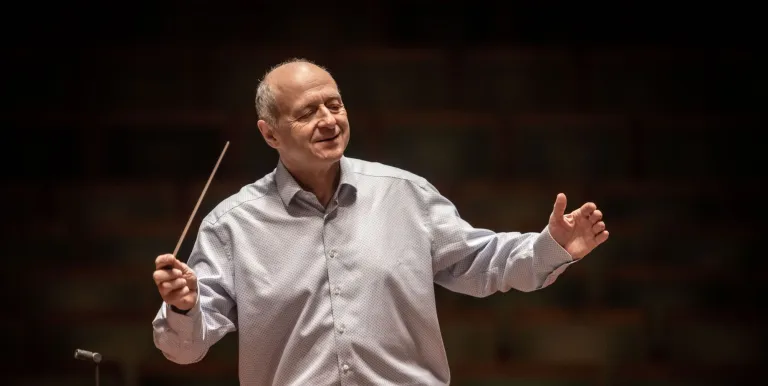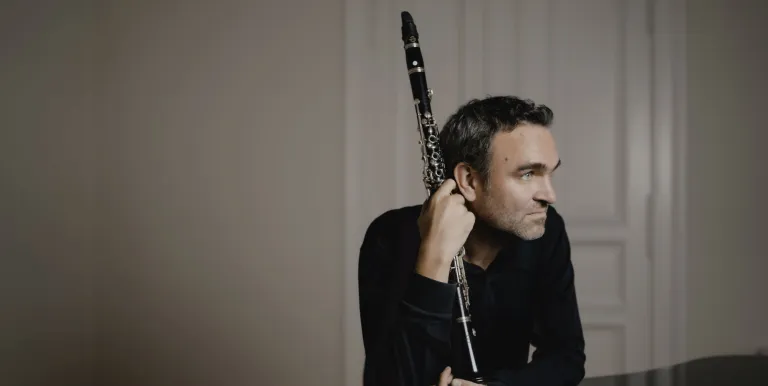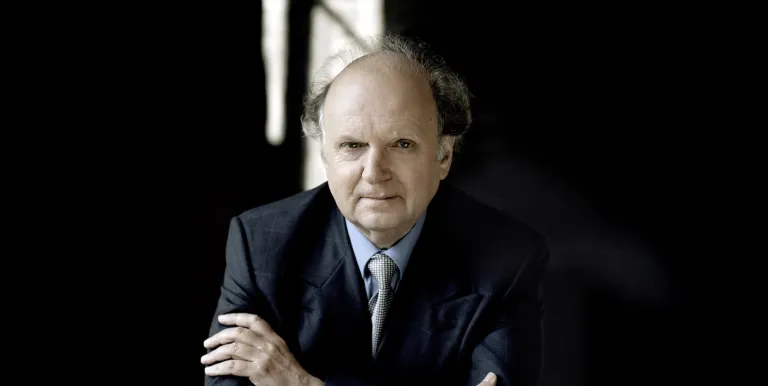one interval
Conductor:
Featuring:
Liszt
Hungarian Rhapsody No. 2
Liszt
Piano Concerto No. 2 in A major
Bartók
The Miraculous Mandarin, Sz. 73, BB 82 - pantomime in one act
Bridging Europe with Liszt and Bartók, along with a cimbalom, a piano and a pantomime. It is not simply the orchestra version of the most famous of the Hungarian rhapsodies that will be featured this evening: joining them will be Jenő Lisztes, a master of the cimbalom, an instrument typical of the urban Gypsy music that inspired Liszt, who, in addition to captivating audiences at Carnegie Hall, the Musikverein and the BBC Proms alongside the BFO, has also worked with the legendary Hans Zimmer. Liszt's increasingly richly orchestrated piano concerto, which he revised four times, will be performed with Croatian soloist Dejan Lazić. One of Bartók's most beloved works, The Miraculous Mandarin, with a plot that explores questions of the body and soul, will be brought to life by the Éva Duda Dance Company.
In the late 1840s, Liszt retired from performing and settled down in Weimar to work as a court conductor. There, his focus as a composer shifted to the symphonic genres he had neglected previously. At the premiere of his Piano Concerto No. 2 in A major in 1857, he took up the conductor's baton, but left the solo part to one of his students. Although the piece sounds like one single movement, it can be divided into several sections. Liszt tied the piece together with a single central concept, an intimate and lyrical theme that he returns to with a different style and tempo in each segment until it culminates in the finale as a brass fanfare.
"In the jungle of a city slum, three tramps force a young girl to seduce men so that they can then rob them,” begins Béla Bartók's description of The Miraculous Mandarin. In Menyhért Lengyel's nightmare tale, the tramps first successfully waylay two poor men, but then are unable to overcome the third victim: a wealthy Chinese mandarin who besieges the girl with his love. They strangle him, stab him with a sword and even hang him, but to no avail. Finally, the girl gives the mandarin what he longs for, and he drops dead. In it, Bartók breaks with classical tonality and uses dissonance as a means of expression. Placing the percussionists in the foreground, he also wrote unorthodox parts for the wind instruments and related the story with a wild, rhythmic, pulsating sound - at least musically. Reinterpreting the visual side of the work will be the dancers of the Éva Duda Dance Company, known for its dynamic and daring choreographies.
Presented by: Müpa Budapest, Budapest Festival Orchestra
-
We wish to inform you that in the event that Müpa Budapest's underground garage and outdoor car park are operating at full capacity, it is advisable to plan for increased waiting times when you arrive. In order to avoid this, we recommend that you depart for our events in time, so that you you can find the ideal parking spot quickly and smoothly and arrive for our performance in comfort. The Müpa Budapest underground garage gates will be operated by an automatic number plate recognition system. Parking is free of charge for visitors with tickets to any of our paid performances on that given day. The detailed parking policy of Müpa Budapest is available here.












